Contents
Guide
IMPOSSIBLE PARENTING

OLIVIA SCOBIE
IMPOSSIBLE PARENTING
Creating a New Culture of Mental Health for Parents
Copyright Olivia Scobie, 2020
All rights reserved. No part of this publication may be reproduced, stored in a retrieval system, or transmitted in any form or by any means, electronic, mechanical, photocopying, recording, or otherwise (except for brief passages for purpose of review) without the prior permission of Dundurn Press. Permission to photocopy should be requested from Access Copyright.
Publisher: Scott Fraser | Acquiring editor: Kathryn Lane | Editor: Jess Shulman
Designer: Laura Boyle
Cover image: shutterstock.com/Danussa
Printer: Marquis Book Printing Inc.
Library and Archives Canada Cataloguing in Publication
Title: Impossible parenting : creating a new culture of mental health for parents / Olivia Scobie.
Names: Scobie, Olivia, 1983- author.
Description: Includes bibliographical references and index.
Identifiers: Canadiana (print) 20200278606 | Canadiana (ebook) 20200278738 | ISBN 9781459746541 (softcover) | ISBN 9781459746558 (PDF) | ISBN 9781459746565 (EPUB)
Subjects: LCSH: ParentingPsychological aspects. | LCSH: ParentsMental health. | LCSH: Parents Family relationships.
Classification: LCC BF723.P25 S36 2020 | DDC 155.9/24dc23

We acknowledge the support of the Canada Council for the Arts and the Ontario Arts Council for our publishing program. We also acknowledge the financial support of the Government of Ontario, through the Ontario Book Publishing Tax Credit and Ontario Creates, and the Government of Canada.
Care has been taken to trace the ownership of copyright material used in this book. The author and the publisher welcome any information enabling them to rectify any references or credits in subsequent editions.
The publisher is not responsible for websites or their content unless they are owned by the publisher.
VISIT US AT
 dundurn.com
dundurn.com
 @dundurnpress
@dundurnpress
 dundurnpress
dundurnpress
 dundurnpress
dundurnpress
Dundurn
3 Church Street, Suite 500
Toronto, Ontario, Canada
M5E 1M2
To my children.
May we always be perfectly imperfect. And forgiving.
CONTENTS
ONE
INTRODUCTION
THE DREAM OF THE GOOD PARENT
B efore they have children, most parents have a dream of what they think their new life will look like. Some of us focus on snuggling tiny babies, with their sleepy yawns and tiny socks, all nestled into a little blanket burrito. Others think of adorable toddlers with their toothy grins, broken language, and cuddly reading time. A few of us even envision helping school-aged children with their homework or driving them to an early morning sport practice or art class.
In these dreams we usually have quiet, well-behaved, neurotypical, able-bodied children. We have deep relationships with our children where we love and respect each other. Life is good in this dream. Its happy and joyful. We are good parents with good children.
Some anxiety may slip into this dream. We might worry if we will be enough. We might not know if we can afford the vision. We might see other peoples children behaving badly and wonder how to avoid such behaviours while convincing ourselves that, somehow, itll be different for me/us.
My vision of parenting was patterned on the life of Lorelai Gilmore, the adorable, confident single mother from The Gilmore Girls. When I got pregnant with my first-born son, I was young about a year out of high school. I already knew that the person I got pregnant with wasnt going to be a parent in much more than title, and that I was going to have to figure this out on my own. But that was no big deal. I was Lorelai Gilmore. I imagined going for long walks with my baby in the stroller, coffee in one hand, chatting with friends. I saw us becoming best buds and braving the world together. I knew there would be challenges, but a dynamic team like us? We could handle it.
Then I had the baby.
Becoming a parent was like taking a long series of punches in the face. The birth was traumatic. Nursing was simultaneously a nightmare and a cruel joke, landing us back in the hospital after only a few days because I had an infant so dehydrated that he could barely muster a cry. Once he was nourished with formula, he didnt sleep for more than forty minutes at a time and when he was awake, he cried and cried and cried. I went back and forth, either frantically struggling with a baby that was awake and crying, or stuck under a sleeping baby who could not be put down. He also had a medically complicated urinary system, chronic ear infections, and severe reflux, so we hung out at the hospital a lot. There were no coffee strolls. There were no breaks. We were not friends.
I thought the first year with my baby would be the best year of my life. Instead I found myself praying every day that I would die and that someone more equipped than me would be willing to raise this difficult creature into a lovely human.
Unfortunately, my experience was not unique.
THE GRIND IS UNFORESEEABLE
Once we become parents, most of us realize that our pre-parent selves were naive, or even foolish. To some extent, theres a discrepancy for every parent between what they thought it was going to be like and what its really like, and theres nothing abnormal about that. When the gap between expectation and reality feels massive, some people adapt relatively easily. But others really struggle.
My partner, Janna, refers to this adjustment as learning to live with the grind of parenting, a term Ive now adopted as my own. How the grind will feel is simply unknowable before having children. I had two kids when I met Janna, and before we moved in together, we spent a lot of time hanging out as a family. I asked Janna if they were nervous about living with the kids, but they assured me that they had spent enough time with them to get a sense of what it would be like. After a year of living together, we returned to this conversation, and they admitted that while they had a sense of many aspects of parent life, they couldnt have imagined how wearying the daily grind of chores, the irrationality of children, and the never being off duty for any more than a few hours at a time would be. Its not one task, one sleepless night, or one tantrum that feels tough; its the combination of a seemingly endless stream of them, without knowing when you will get a moment to catch your breath, that feels so intense and exhausting. While there are many rewarding parts of parenting, I often liken the early years to waking up with a leak in your energy system and trying to get to the end of the day without letting the grind suck all your energy out of the leak, all the while hoping that theres at least an hour at the end of the day to fix the leak and fill the tank back up, because you have to do it all over again in the morning.

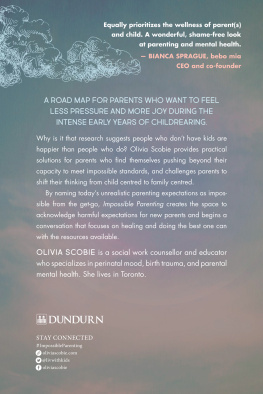

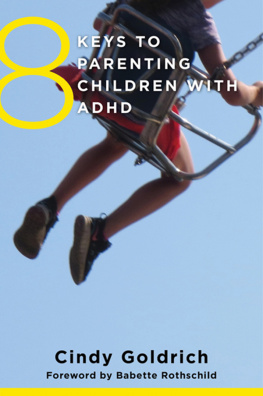
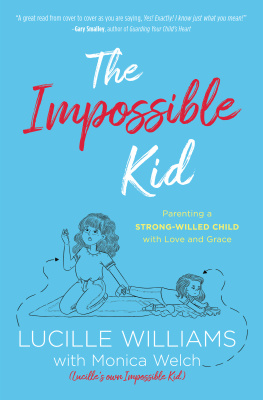
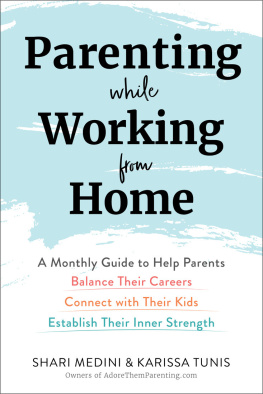
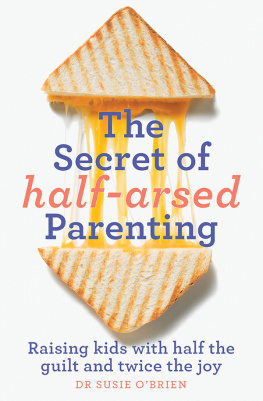
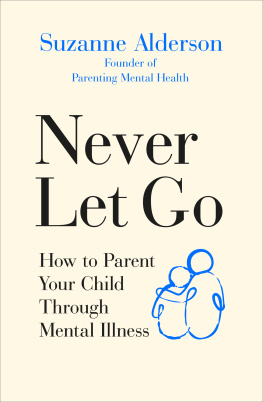
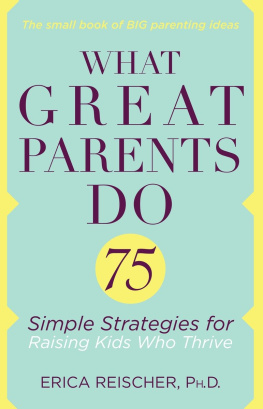
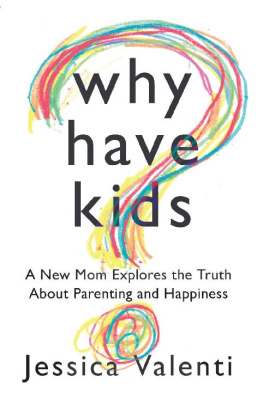
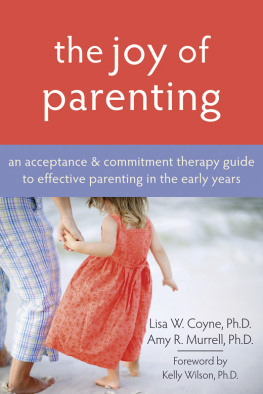



 dundurn.com
dundurn.com @dundurnpress
@dundurnpress dundurnpress
dundurnpress dundurnpress
dundurnpress